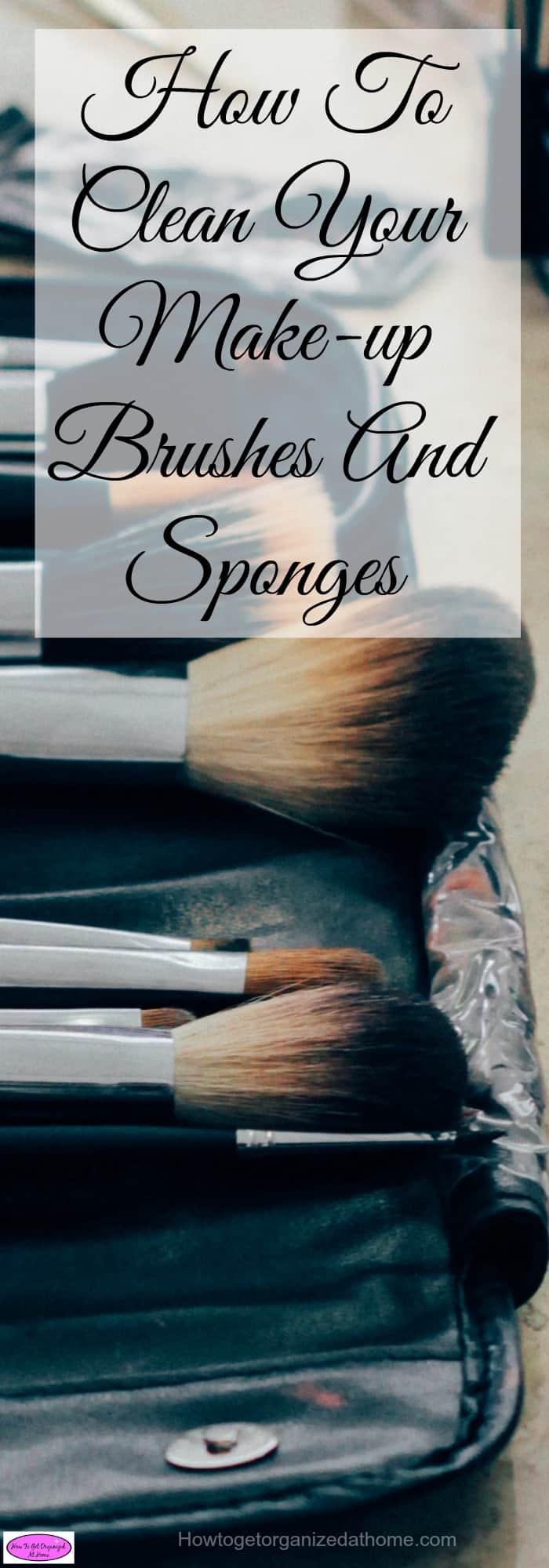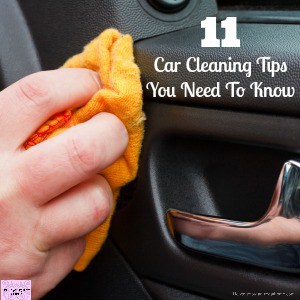How To Clean Your Make-Up Brushes And Sponges
It’s important to clean your make-up brushes and sponges, ideally after each use, but as a minimum at least on a weekly basis. Why it is important to clean these items is to prevent the spread of germs, dirt and bacteria on the skin. If you use other people’s brushes or sponges then you are putting the health of your skin at risk. It is possible to spread bacteria around your face using a dirty applicator and if you are sharing make-up brushes and sponges without cleaning between people, then you are at higher risk of contracting infections which can have a negative impact on your health.

Affiliate links support How To Get Organized At Home
Clean Your Make-up Brushes And Sponges
You have different options when it comes to cleaning your make-up supplies, it depends on the time frame you have as to the method you use, but it is an important process you must not forget. You must clean your make-up brushes and sponges if you want healthy skin.
- Using hand sanitizer is an option for a quick clean for brushes like a lipstick brush, it also allows you to confidently switch between colours and know that you won’t have any mixing of colours. It is also a quick-drying option as the alcohol in the mixture evaporates relatively quickly and wiping on a soft cloth or tissue will remove the residue and dry the brush.
- Washing your make-up brushes and sponges is really simple, you just need water and some type of soap, I prefer shampoo as this is more easily massaged into the brushes. Then it is a case of just rinsing them until they are clear of all traces of make-up, depending how much make-up is in the brush or sponge will depend how many times you need to repeat the process. Remember to take care of the brushes so they don’t lose their shape.
- Drying of the brushes is important, you don’t want to apply make-up with a damp or wet brush. The best option is to allow the brushes to dry naturally, but this can take its time, the alternatives are drying on top of a radiator or using your hair dryer to dry them. Some people will recommend you drying your brush in an upright position and others suggest laying them flat, I prefer to lay them flat, for me I think it gets the best results, but read any recommendations from manufacturers before making your decision.
Why Clean Your Make-up Brushes And Sponges?
The reason is simple, you are using your brushes and sponges directly onto the skin and it is so easy for these items to pick up dirt, germs and bacteria if you don’t clean them each time you apply these to your face to add make-up you are putting these germs onto your skin.
This can lead to infections and poor quality skin.
If you keep your make-up brushes and sponges clean it will improve your make-up application as you won’t try to apply fresh make-up with old dry make-up which is already on your brushes and sponges.
If you like to try different colours you will be creating a mess, a mixture of different tones and colours that won’t allow for clear colour application of your make-up.
Don’t Forget The Rest Of Your Make-up
If you get into the habit of regularly cleaning your make-up brushes and sponges it will be easier to progress to keeping the rest of your make-up supplies clean, fresh and ready for use.
At the very least you should inspect your make-up and check the health of the product, remember to discard products if you have had them too long, there is an expiry on how long you should keep make-up.
Cleaning out your make-up bag regularly and ensuring that it is kept clean will remind you to check the rest of your make-up once you put it away.
It is surprising how dusty the area where you apply make-up can get, keeping on top of this cleaning will ensure that you don’t end up with a dirty surface which you are putting your brushes and make-up directly onto, increasing exposing these items to more germs, dirt and bacteria.
Therefore, in an ideal world, you should consider cleaning your make-up brushes and sponges after each use. However, this isn’t always possible and weekly cleaning of these items is the maximum you should leave them between cleaning. Don’t leave them dirty as this increases the risk of spreading germs and bacteria onto your skin with the potential of spreading an infection which will require medical treatment, costing you money and time in the process.



